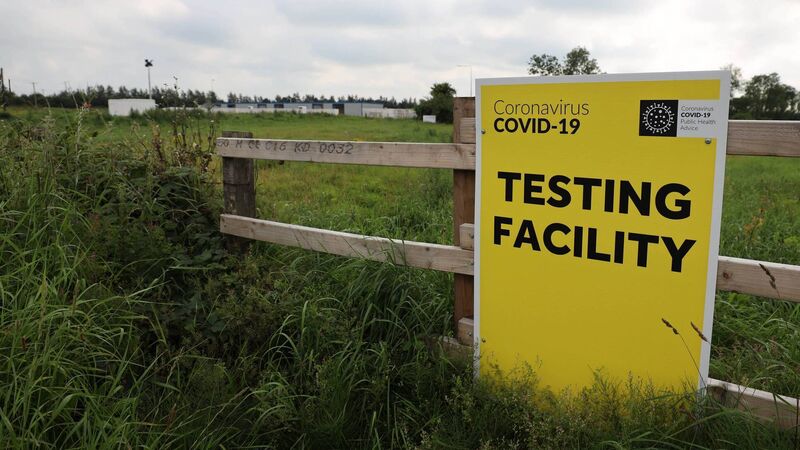1,300 cases a day in October if nothing changes, warns Nphet chair

A Covid-19 test centre outside Tullamore, Co Offaly. File picture: Collins
The chair of the National Public Health Emergency Team (Nphet) has warned that the country could see more than 1,000 cases a day in October if nothing changes.
Cases have been rising across the country with Dublin and Donegal placed under level three restrictions due to the rise.













